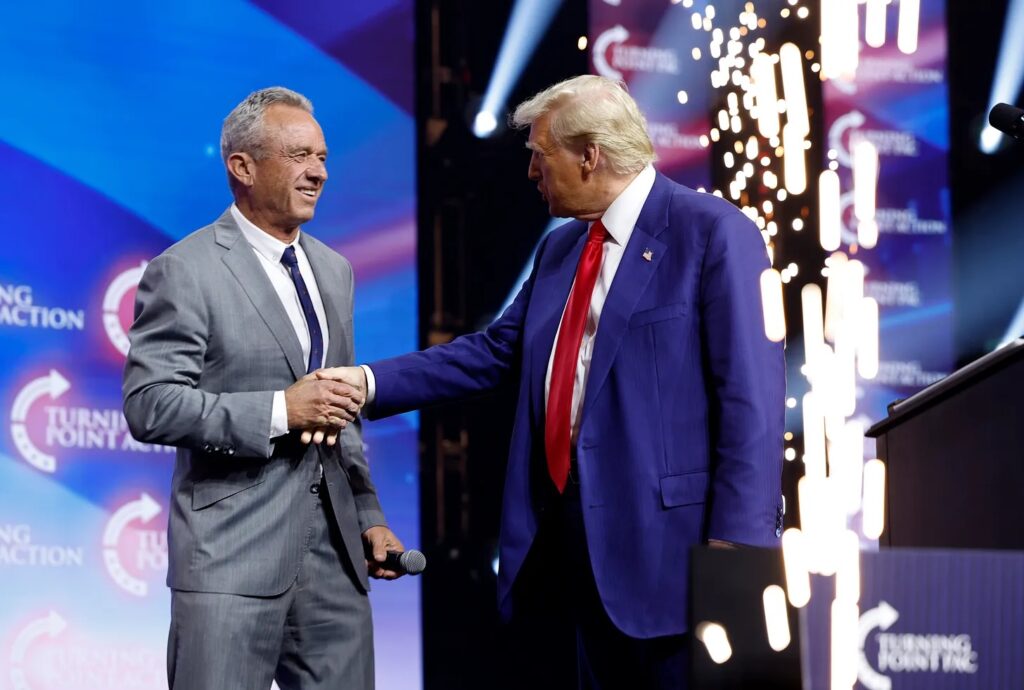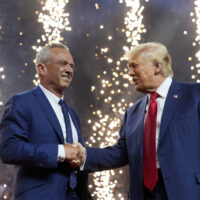
Image Credit: Consumed
Every week we track the business, tech and investment trends in CPG, retail, restaurants, agriculture, cooking and health, so you don’t have to. Here are some of this week’s top headlines.
The food landscape is at a pivotal moment, with contrasting visions shaping its future. The “Make America Healthy Again” (MAHA) agenda, spearheaded by RFK Jr. under Trump’s endorsement, seeks to tackle harmful chemicals, processed foods, and corporate influence in food systems, facing significant industry and political hurdles. Meanwhile, Wonder’s $650 million acquisition of Grubhub signals a technological shift in dining, aiming to create a “super app for mealtime” that integrates restaurant offerings with its food halls.
In other news, we’ve wrapped the first season of our podcast in partnership with AgFunder: New Food Order, a nuanced investigation into the business of tackling our climate and social crises through food and agriculture. Read all about why we launched the podcast, and be sure to subscribe and share!
Our newsletter takes a lot of time and resources to produce. Make a one time or monthly contribution to help us keep it going. Whether it’s $5 or $500, every bit helps and shows us that you value our work.
1. Will Trump Make America Healthy Again? – Consumed
MAHA, led by RFK Jr., aims to reform food systems by targeting harmful chemicals, processed foods, and corporate influence but faces significant political and industry resistance.
2. What’s the Deal With Wonder, the ‘Food Hall’ That’s Suddenly Everywhere? – Eater
Wonder just acquired Grubhub for $650m, bringing it one step closer to its goal of becoming the “super app for meal time” by allowing the company to offer Grubhub’s restaurant partners in its app alongside its existing food halls.
3. RFK, Jr To Head HHS: Brilliant Move or Catastrophe? – Food Politics
The president-elect’s food and health agenda includes tackling corporate influence, harmful chemicals, and chronic disease, alongside controversial measures like grain bans and raw milk deregulation, sparking debate.
4. Elon Musk Says Beef Has No Impact on Climate Change, Fuelling Pro-Meat Rhetoric Under Trump – Green Queen
The world’s richest man and Donald Trump’s “first friend” has disregarded the impact of beef on climate change, hinting at a red meat renaissance in the US.
5. What a Second Trump Administration Could Mean for Your Food – Civil Eats
The likely scenarios: higher prices, less nutritious food, and an increased risk of pathogens in the food supply. And that’s not the half of it.
6. The Path Forward for Food and Ag – Civil Eats
Leading voices in the food movement respond to a second Trump administration, and discuss where we go from here.
7. Government Interference, Eternal Vigilance. – The Checkout
Markets, especially in food, depend on government frameworks, subsidies, and regulation. While imperfect, governments create and enable markets, shaping their structure and ensuring functionality.





